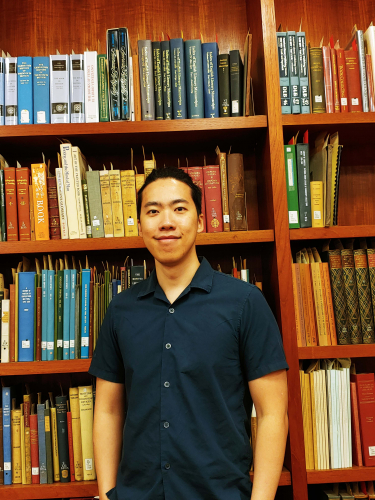
Before applying for this job, I didn’t even know that Rare Books, Special Collections, and Preservations (RBSCP) existed in our library. This is curious since I frequent museums and consider myself interested in anything old and historical, particularly if they are in the form of papers and bounded—better, leather-bound. So, it was a pleasant surprise to find that our university thought it important to have one (having such a department requires quite a lot of money, so I learned).
Thrilled that I got an offer, I now worry if I’ll have to have a working knowledge of all the collections that we have. I wasn’t comforted in realizing it’s almost impossible to reach that stage and finish your Ph.D. on time but relieved that it is not required of me. Make no mistake, I researched the place before applying for the job. Nonetheless, I wasn’t appreciating the magnitude of materials we have. They are not limited to papers with letters; we have film rolls, paintings, and memorabilia like pins, badges, and so on. Further, these items are from many different sources: some I’ve heard like Kodak, Frederick Douglass, Susan B. Anthony, and William Henry Seward; however, most of the rest I simply never heard of or didn’t recognize that their items are considered rare or special.
I learned. Before this, I thought only signed copies are considered rare. Not necessarily, because you could have a signed copy that isn’t rare e.g., a copy of millions of identical signed copies from an, unfortunately, less significant author. Many things could contribute to the rarity and the specialty of an item, ranging from a typo in some editions to the more obvious type like being handwritten by William Henry Seward.
I imagine coming to a job like this would make any specialist nervous, much worse if you are not a specialist of any sort in rare books, like me. I’m happy to report that I feel welcomed even with my glaring ignorance of many materials we have. Never have I been pressured to balderdash through a question. It’s okay not to know everything and, better still, we have our expert librarians in the house to answer any questions regarding the materials. My job doesn’t involve being a peer expert to the researchers coming in to do their study, but more of a facilitator to what they are doing. It’s my pleasure to assist them in accessing the material and making sure that our collections are used properly.
Oh, conversing with attendees about what they are researching is also intellectually rewarding. I’m familiar with researching ancient manuscripts, trying to find how a copy might have been edited and for what purposes, but I keep acquiring new knowledge about what people can research like the ephemera that are currently being exhibited as I type this. Fascination is the perfect response to encountering the mundane things people kept and put such significant value on.
Having said that, my days here are not limited to being an ignoramus par excellence waiting to learn new stuff every day, thankfully. Adding to learning new things every shift, we also have visitors who, like me, didn’t know this department existed; or perhaps they know but are too intimidated to come in and ask questions. Initiating them to the space is a privilege I now have.
By: Vincent Tanzil, Graduate Student for Ph.D. in Philosophy


